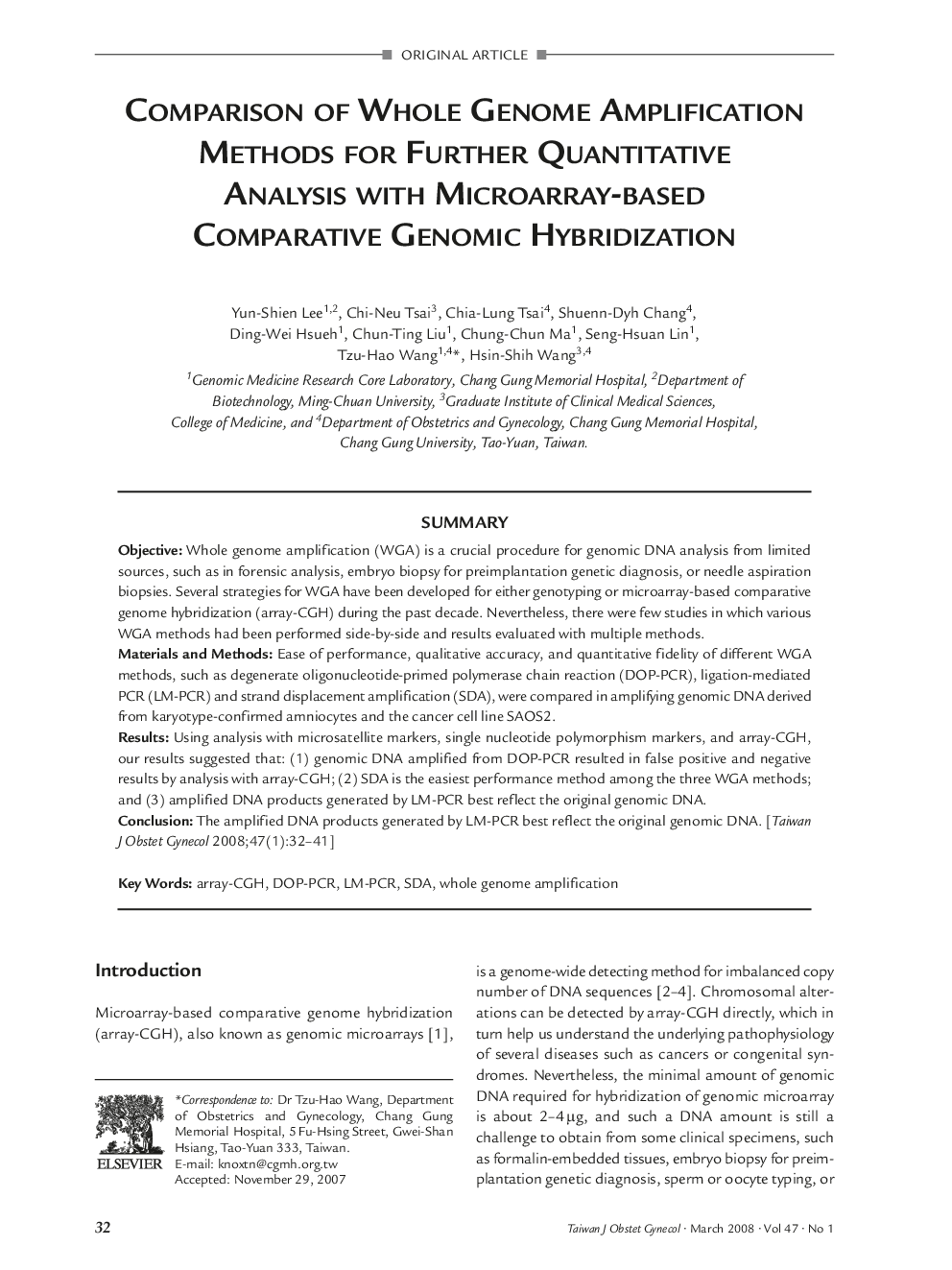| Article ID | Journal | Published Year | Pages | File Type |
|---|---|---|---|---|
| 3976260 | Taiwanese Journal of Obstetrics and Gynecology | 2008 | 10 Pages |
SummaryObjectiveWhole genome amplification (WGA) is a crucial procedure for genomic DNA analysis from limited sources, such as in forensic analysis, embryo biopsy for preimplantation genetic diagnosis, or needle aspiration biopsies. Several strategies for WGA have been developed for either genotyping or microarray-based comparative genome hybridization (array-CGH) during the past decade. Nevertheless, there were few studies in which various WGA methods had been performed side-by-side and results evaluated with multiple methods.Materials and MethodsEase of performance, qualitative accuracy, and quantitative fidelity of different WGA methods, such as degenerate oligonucleotide-primed polymerase chain reaction (DOP-PCR), ligation-mediated PCR (LM-PCR) and strand displacement amplification (SDA), were compared in amplifyinggenomic DNA derived from karyotype-confirmed amniocytes and the cancer cell line SAOS2.ResultsUsing analysis with microsatellite markers, single nucleotide polymorphism markers, and array-CGH, our results suggested that: (1) genomic DNA amplified from DOP-PCR resulted in false positive and negative results by analysis with array-CGH; (2) SDA is the easiest performance method among the three WGA methods; and (3) amplified DNA products generated by LM-PCR best reflect the original genomic DNA.ConclusionThe amplified DNA products generated by LM-PCR best reflect the original genomic DNA.
